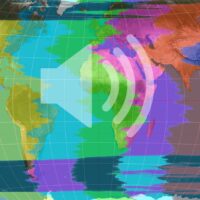000
100
%
Image-Sound-Memory (AtISM)

Présentation
As part of the Digital Transversality and Media Cultures division, the Image-Sound-Memory (AtISM) workshop aims to develop and strengthen work on the analysis of images and sounds from the perspective of a visual, sound, and audiovisual history of sensory cultures.
It aims to contribute to the development of methodologies for analysing sound, visual, and audiovisual material, in order to unearth new sources and reconsider their utility for research. Henri Chamoux’s internationally recognised role in preserving the sound archives of the Rivonia trial is particularly noteworthy in this respect. (See above.)
The workshop can draw on a long-standing and close collaboration with the Institut national de l’audiovisuel (INA). It benefits from LARHRA’s experience in developing audiovisual sources through the production of narrative and educational frescoes such as “Montagnes Magiques, Cent ans de tourisme à l’écran” (“Magic Mountains, One Hundred Years of Tourism on the Screen”) (a fresco produced as part of the ITEM-UPMF labex).
It also aims to contribute to the production of audiovisual documents, by publishing audiovisual reconstructions of its work online, by participating in the development of audiovisual works by writing scripts, and by offering doctoral students this means of promoting their work.
The workshop Image-Sound-Memory (AtISM) aims to develop and strengthen LARHRA's work on the analysis of images and sounds in the context of a contemporary visual, sound, and audiovisual history.
Thématique 1
Mediatisation of visual and sound cultures
Seminar on visual and sound cultures
A monthly seminar, held alternately in Lyon and Grenoble, examines the various forms of mediatisation of visual and aural cultures, the arts, and senses. The history of television is one of the main subjects, as is the mediatisation of art. (Laurent Baridon, Isabelle Gaillard, Evelyne Cohen, Anne-Marie Granet)
International Archives-Media-Images-Society Programme
AtISM is a stakeholder in the Franco-Brazilian AMIS (Archives-Médias-Images-Sociétés) research programme, coordinated by LARHRA. This international, multidisciplinary programme brings together around ten laboratories and teams. It studies audiovisual documents and programmes in the media and on social networks in the 20th and 21st centuries. The interest is in their value and use as archives that can be reused, exported, and rebroadcast from one medium to another. The overall aim is to evaluate the social role of audiovisual media in France and Brazil. (Coordinators: Isabelle Gaillard with the collaboration of Evelyne Cohen; team Anne-Marie Granet and Simele Soares-Rodrigues)
Thématique 2
Patrimonialisation of visual and sound sources
AtISM works on ways of archiving, conserving, and promoting visual and sound sources. Work in this area has been underway for a number of years, and is now well established owing to the level of sophistication attained.
The Phonobase offers the sound and image content of old records and cylinders not in the legal depository, and recorded mainly in France for commercial, research, or leisure purposes, from around 1888 to 1940.
Some public collections are on the Phonobase, but most of it comes from private collections, thanks in particular to a collaboration with the Phonoplanète association, which supports the Phono Museum Paris.
To date, the database contains just over 12,000 audio files and as many photographs. The monitoring activity associated with this database includes the operation of a resource site devoted to the beginnings of the phonographic industry: archeophone and an online record book.
(Henri Chamoux)
Thématique 3
Sensory Cultures
Cultures of the senses
Olfactory perception
Our work focuses on cultures of the sensory, with particular reference to the history of the sense of smell. The study of odour perception in Erika Wicky’s work includes questions of how odours are produced by technical means. This approach is in line with the work being carried out by the CDP- Université Grenoble Alpes Cosmethics.
(Laurent Baridon, Anne-Marie Granet, Erika Wicky)
Spatial environments and sound
The EGY20 programme, led by Sylvia Chiffoleau, envisages a collaboration between historians and scriptwriters that will culminate in the writing of a fictional series devoted, initially; to Egypt in the 1920s, and subsequently extended to the Middle East. The aim is to collect and digitise the items perceived and experienced by individuals and to make them available digitally. This project will draw on the networks of the Écoles françaises à l’étranger and the Instituts de recherche français en Méditerranée.
(Frédéric Abécassis, Sylvia Chiffoleau and Elena Chiti).
